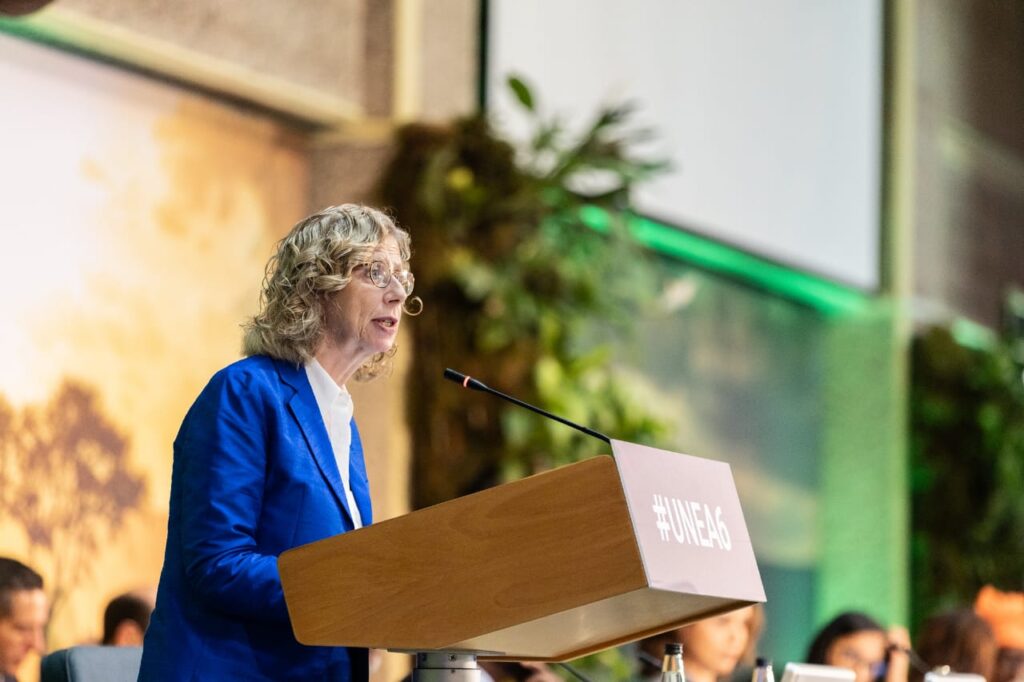World leaders urged to unite against climate change at UNEA 6
Day four of the UNEA-6 summit saw at least 18 presidents, prime ministers, and heads of UN-affiliated bodies descend upon the UN headquarters in Gigiri, Nairobi bringing the usually sleepy complex to life.
The leaders, attendees, and members of the press assembled in the vast conference room 2 packed to full capacity by 9 am Thursday.
Unable to attend in person, UN Secretary-General Antonio Guterres, addressed the gathering via a video message, making a firm call for countries to make use of the recently set up COP28 loss and damage fund and urged players at the summit to make bolder steps towards changes, particularly in plastic pollution.
“Together we need governments to deliver a new treaty on plastic pollution and to massively increase finance for sustainable development and climate and biodiversity action in developing countries,” the UN chief said.

He further called attention to the impact climate change had on the least contributors of climate change.
“We must work together to combat this crisis recognizing the links between them to put the world on a sustainable path and turbocharge sustainable development,” he said.
Kenyan President William Ruto acknowledged the fact that the world’s problems were being exacerbated by an alarming climate change trend whose implications are now impossible to ignore.
“Record-breaking temperatures, catastrophic droughts and floods, escalating sea levels, landslides, rampant wildfires, and severe cyclones have become frequent and familiar in many regions worldwide,” Ruto said.

To stop the trend on its tracks, Ruto told the assembly it was imperative to band together since no economy, community, or nation can tackle these challenges single-handedly with any hope of success.
This unity, he said, also needed to be coupled with efforts concentrated at the grassroots level.
“All the work must begin at home, with effective domestic measures. In Kenya, the government has instituted a comprehensive institutional framework to anchor decisive interventions across numerous sectors, including energy and pollution, forest conservation and critical landscape restoration, agriculture and food systems, as well as nature and biodiversity,” he said.
UNEP Secretary-General Inger Andersen made a similar call.
“We cannot push back with the force required if we are divided. True strength comes from unity. So, I ask this Assembly to do what it does best.”
She asked the assembly to put aside national and regional differences for the greater good of the planet Earth.
“Remember that if my air is dirty, if my climate is changing, if my shores are awash with plastic, yours are too. We stand together or we fall together. That is inclusive environmental multilateralism.”

These sentiments were echoed by Somalia President Sheikh Mohamud who informed the assembly that his country was on the frontline of climate change.
“Our government is working tirelessly to address the enormous challenges we face in mitigating, adapting to the new painful reality we’re facing today. As a country, we are witnessing rising temperatures and have just come out of the four-year drought up with a climate-induced humanitarian situation that is still stubbornly persisting,” he said.

He further divulged that these efforts include a plastic ban on plastic bags set to take effect in June.
However, despite local efforts against climate change, the president confessed that most of the developing states like Somalia cannot meet their vast and most pressing adaptation, and mitigation requirements and priorities.
“Our nationally determined contribution reflects our commitment to addressing climate change through a comprehensive framework that prioritizes both mitigation and adaptation strategies. The total cost of implementing these strategies is estimated to be more than $15 billion.”
This, he said, is more than Somalia can raise.






